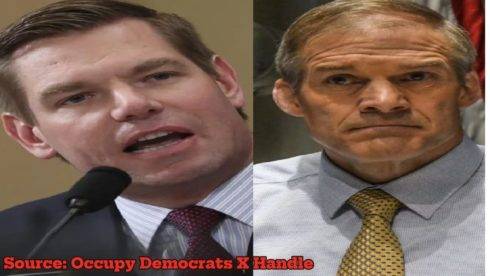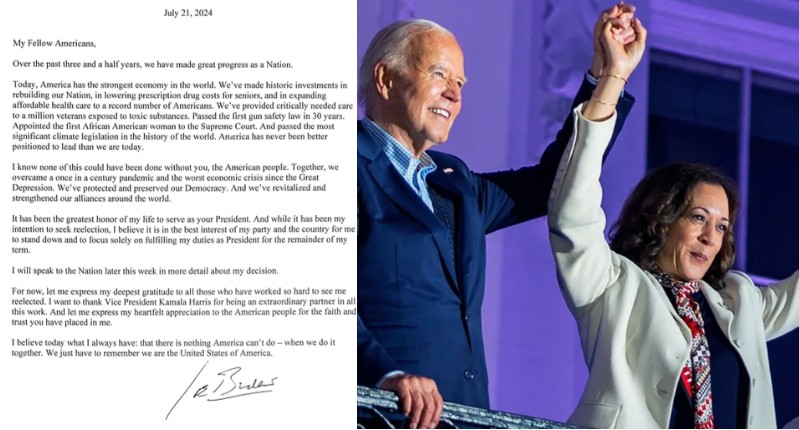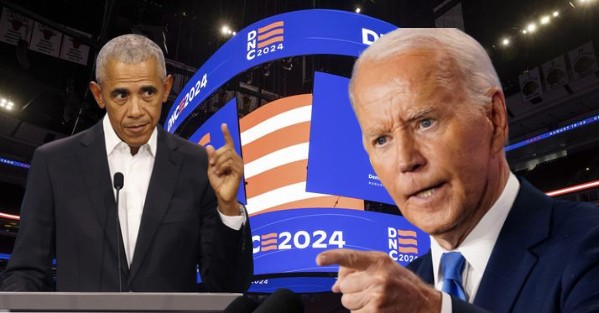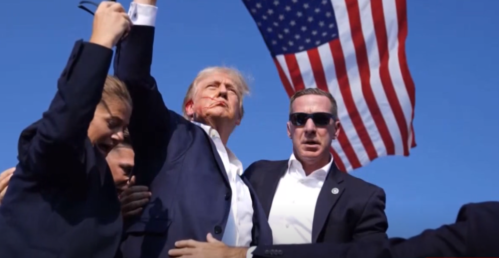Democratic Congressman Eric Swalwell delivered a scathing rebuke to MAGA Representative Jim “Gym” Jordan during a recent congressional hearing, creating an electrifying moment that reverberated across party lines. The hearing, centered on a bill regarding transgender rights, provided the stage for Swalwell to publicly shame Jordan for his alleged negligence during his tenure as an assistant wrestling coach at Ohio State University.
Eric Swalwell’s pointed remarks drew attention to the hypocrisy of Jordan’s vocal concerns over locker room privacy, given his purported silence in the face of rampant sexual abuse within the wrestling program. With his characteristic blend of wit and conviction, Swalwell seized the opportunity to hold Jordan accountable for his actions—or lack thereof—while underscoring the urgency of addressing systemic issues of abuse and accountability.
Unveiling the Hypocrisy: Eric Swalwell’s Bold Assertion
In a moment that encapsulated the essence of political theater, Eric Swalwell unapologetically called out Jordan’s hypocrisy, shedding light on the stark dissonance between his professed values and his alleged complicity in the face of egregious misconduct. By juxtaposing Jordan’s fervent advocacy for locker room privacy with his purported indifference to the plight of abused athletes, Eric Swalwell delivered a powerful indictment of Jordan’s character and integrity.
Eric Swalwell’s decision to confront Jordan head-on resonated with many observers, who applauded his willingness to speak truth to power and challenge entrenched narratives of impunity and privilege. In an era marked by partisan rancor and moral ambiguity, Eric Swalwell’s uncompromising stance served as a reminder of the importance of holding public officials accountable for their actions, regardless of political affiliation.
A Call for Accountability: Eric Swalwell’s Challenge
At its core, Eric Swalwell’s confrontation with Jordan represented a clarion call for accountability and transparency in public service, a call that transcended the confines of partisan politics and spoke to the broader imperative of upholding ethical standards and moral principles. By refusing to let Jordan evade scrutiny or deflect responsibility, Eric Swalwell underscored the fundamental importance of integrity and moral courage in the exercise of political leadership.
Eric Swalwell’s challenge to Jordan reverberated throughout the political landscape, prompting soul-searching discussions about the moral obligations of elected officials and the need for a more robust culture of accountability within institutions of power. As the nation grappled with the fallout from Eric Swalwell’s blistering critique, many wondered whether Jordan would heed the call for accountability or continue to evade responsibility for his alleged actions.
The Shadow of Allegations: Jordan’s Controversial Legacy
For Jordan, the specter of allegations surrounding his tenure at Ohio State University loomed large, casting a shadow over his political career and raising troubling questions about his fitness for office. While Jordan has vehemently denied any knowledge of the abuse perpetrated by team doctor Richard Strauss, his detractors have pointed to testimonies from former wrestlers and alumni who allege that Jordan was aware of the misconduct but chose to turn a blind eye.
As Eric Swalwell’s pointed remarks reignited scrutiny of Jordan’s past actions, the congressman found himself once again thrust into the spotlight, forced to confront uncomfortable truths about his legacy and reputation. With calls for accountability growing louder by the day, Jordan faced mounting pressure to address the allegations head-on and provide a credible account of his role in the unfolding scandal.
Wrestling with Consequences: Jordan’s Political Future Hangs in the Balance
In the wake of Eric Swalwell’s blistering critique, Jordan’s political future hung in the balance, with many speculating about the potential fallout from the damning revelations and their implications for his standing within the Republican Party. While Jordan’s staunch supporters rallied to his defense, dismissing the allegations as politically motivated smears, others expressed deep reservations about his fitness for leadership in light of the serious accusations leveled against him.
As the controversy surrounding Jordan continued to unfold, political observers remained divided over the potential ramifications for his career, with some predicting that he would weather the storm and emerge unscathed, while others warned of lasting damage to his reputation and credibility. With the eyes of the nation fixed firmly on Capitol Hill, the outcome of this high-stakes political drama remained uncertain, with far-reaching implications for the future of American democracy.
Lessons Learned: Toward a More Accountable Future
In the aftermath of Eric Swalwell’s confrontation with Jordan, lawmakers and citizens alike grappled with the broader lessons to be gleaned from this episode, reflecting on the importance of transparency, integrity, and moral leadership in the halls of power. As the nation reckoned with the complexities of partisan politics and the imperative of holding elected officials accountable for their actions, calls for reform and accountability grew louder, signaling a newfound determination to confront systemic issues of abuse and misconduct.
Ultimately, Eric Swalwell’s bold stand against Jordan served as a potent reminder of the power of principled leadership and the enduring value of moral courage in the face of adversity. As the nation confronted its collective conscience, grappling with uncomfortable truths and difficult questions, the stage was set for a renewed commitment to the ideals of justice, integrity, and accountability—a commitment that would shape the course of American democracy for generations to come.
Table of Contents
Discover more from OGM News NG
Subscribe to get the latest posts sent to your email.














